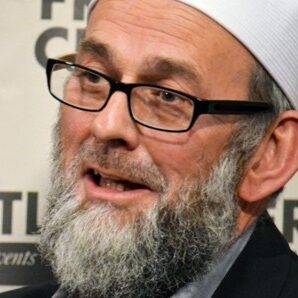Reports in the media claim that Palestinian Authority President Mahmoud Abbas is ready to “dismantle” the authority which gives him control over the occupied West Bank. Given all that has happened since Abbas signed the Oslo Accords on behalf of the Palestinians more than 20 years ago, how seriously should we take his latest threats?
“There is widespread speculation that Abbas wants to stop security cooperation with Israel,” writes Jack Khoury in Haaretz, “renounce the Oslo Accords, including the Paris agreement that governs economic relations with Israel, and dismantle the Palestinian Authority.” This comes at a time when the veteran Palestinian politician is preparing to address the UN General Assembly later this month.
Has something extraordinary happened to push him to make such threats? Abbas himself once described security coordination with the Israeli authorities as “sacred” so, clearly, Israel’s ongoing colonisation and the brutality of its military occupation have not given him sleepless nights. Palestinians freed from Israeli prisons are routinely re-arrested by the Palestinian Authority’s own security forces (which have around 70,000 personnel) as they work to keep resistance to the occupation to an absolute minimum. The PA chief’s job has been to make sure that Palestinians aren’t able to rock the Israeli boat and sink its plans to colonise as much of the West Bank and Jerusalem as possible, making a viable Palestinian state near impossible to achieve. The fact that Abbas is still the president suggests that he has done his paymasters proud.
If the PA is dismantled, then the Palestine Liberation Organisation (PLO), which, paradoxically, no longer believes in the liberation of Palestine, and the Palestinian National Council (PNC) would take over as the legitimate representatives of the Palestinians. It is here, I believe, that the reason for Abbas’s threats lie.
It looks as if he is trying to ensure the continuing dominance of his Fatah movement within the Palestinian political arena. Fatah’s main rival faction, Hamas, is not a member of the PLO and attempts to re-structure the umbrella organisation have floundered along with the stymied reconciliation process. That the latter has been opposed and blocked by Israel and its Western supporters who more or less fund the PA is an open secret; Hamas must not be allowed into the mainstream, no matter what the cost. Democracy? Forget it; the West would rather maintain an authority whose president left his democratic legitimacy behind with the 2009 deadline for his term in office than sanction any democratic procedure that could possibly bring the Islamic Resistance Movement to power again. Hence, there has been no pressure on Abbas to call elections, in case Hamas wins them for the second time.
One of the major bones of contention for Palestinians in the diaspora is that they have little or no say in the way that the PA operates; they are excluded from elections, negotiations and discussions. Which is why the call for a meeting of the PNC is interesting, because the body is supposed to represent all Palestinians, no matter where they live. The fact that the venue of the proposed PNC get-together is Ramallah gives us a clue about the thinking behind it all, for there is no guarantee that the Israelis will even allow representatives from Gaza to enter the occupied West Bank in order to attend, never mind those who are based in the rest of the Middle East and beyond. Is this how Mahmoud Abbas intends to maintain Fatah’s grip on power? With Hamas legislators in the West Bank locked up either in Israeli or Palestinian prisons, by holding the PNC meeting in Ramallah — instead of, say, Cairo, or Amman — he is effectively excluding any potential opposition to his plans; he can thus claim some degree of legitimacy for the outcome — “We did hold a PNC meeting” — while more or less controlling the identity and political affiliation of participants.
It is an intriguing situation being engineered by the 80-year-old Abbas, just as he is building a “Presidential Palace” said to be costing millions of dollars that his supposedly impoverished authority does not have available to provide essential services for the people of Palestine. The whole scenario exposes the corruption and degree of collaboration that the leaders of the PLO-Fatah-PA (they’re essentially the same group of people) are happy to be involved in simply in order to protect their own pay-cheques and pensions.
That is the real tragedy of the Palestinians today. They are living under a brutal military occupation, or in squalid refugee camps, or in the diaspora, not only because of Israel’s Western-backed occupation but also because of corrupt Palestinians ready and willing to trade their own souls in order to sup with the devil and destroy any real possibility of bringing freedom and justice to their people. Not for nothing did the late Professor Edward Said criticise Fatah’s Yasser Arafat “and his tight band of loyalists” (many of whom, including Abbas, are still around) for their “subservience to Israel, venality, corruption, lack of accountability and fatal yet characteristic mix of incompetence and authoritarianism.” Little has changed in the intervening years since Arafat died and was succeeded by Abbas.
Moreover, Mahmoud Abbas won’t do anything without the green light from Washington and Tel Aviv, so perhaps we should look beyond his threats to understand what is really going on. He and his corrupt cronies have let their people down big-time. It is time for them to go, through a procedurally honest, free and fair democratic process open to all Palestinians, not by the back door and the de facto exclusion of those most likely to upset his — and, by extension, Israel’s — plans.
The views expressed in this article belong to the author and do not necessarily reflect the editorial policy of Middle East Monitor.








